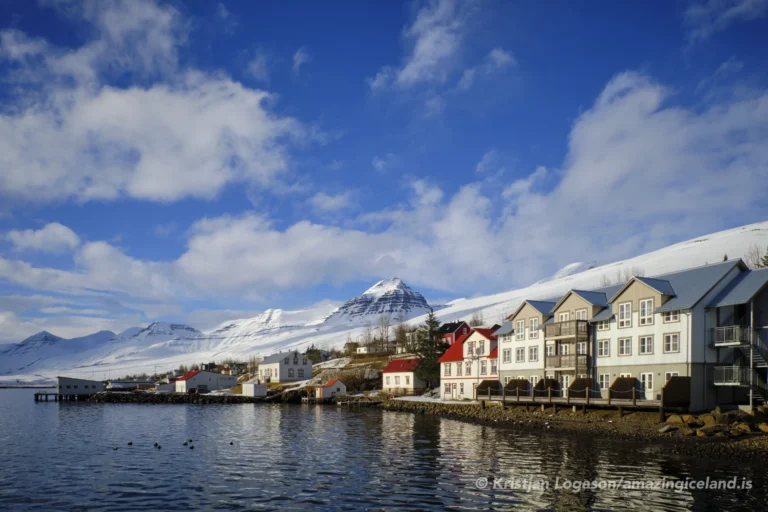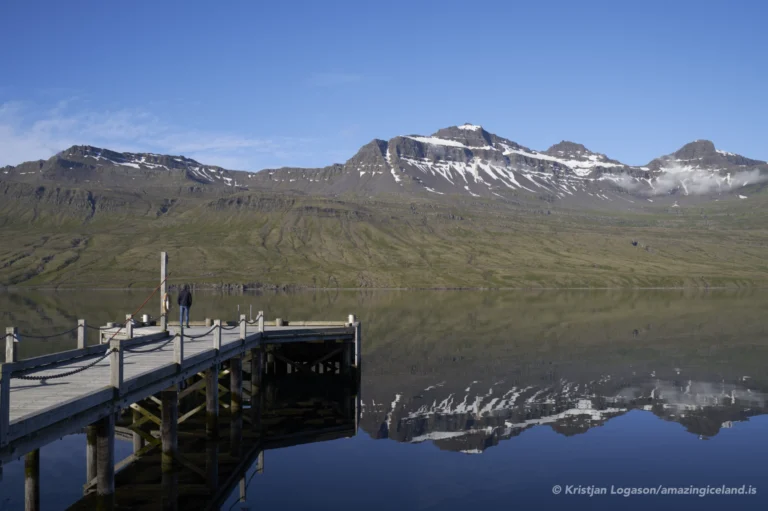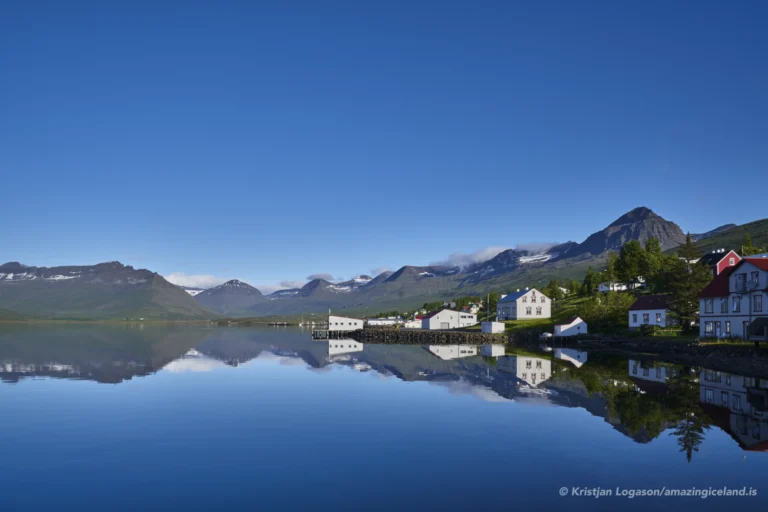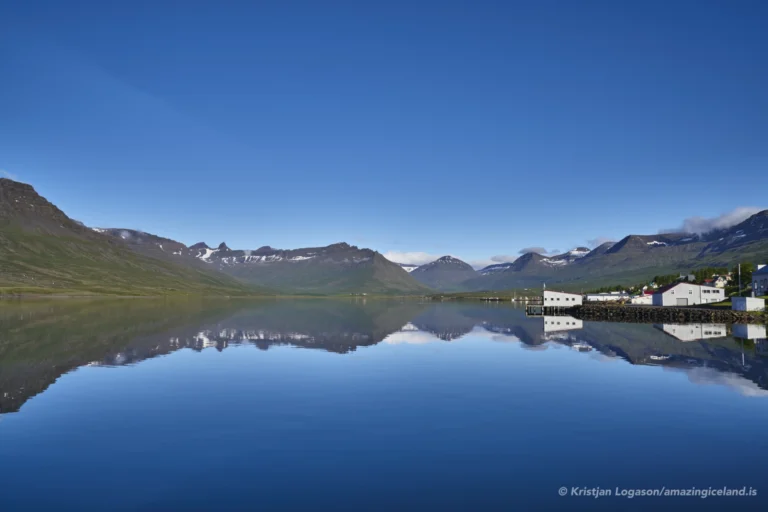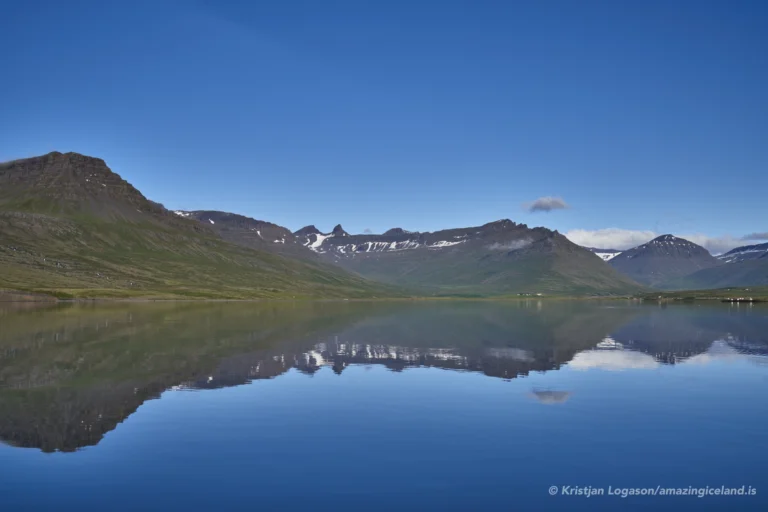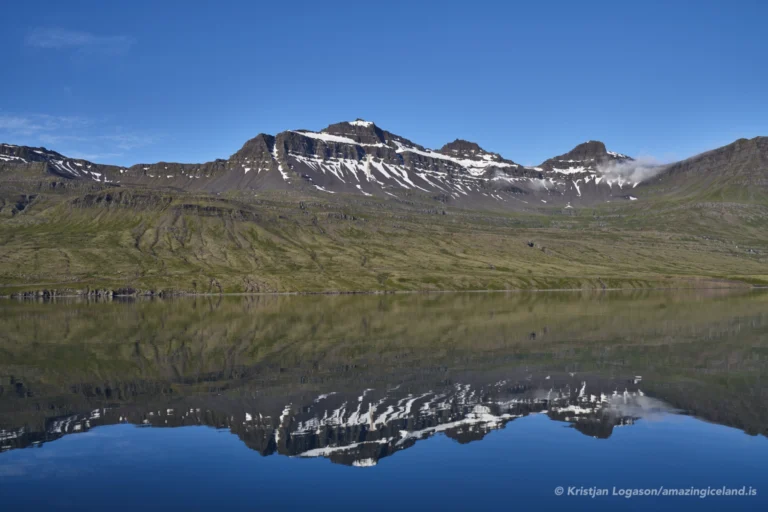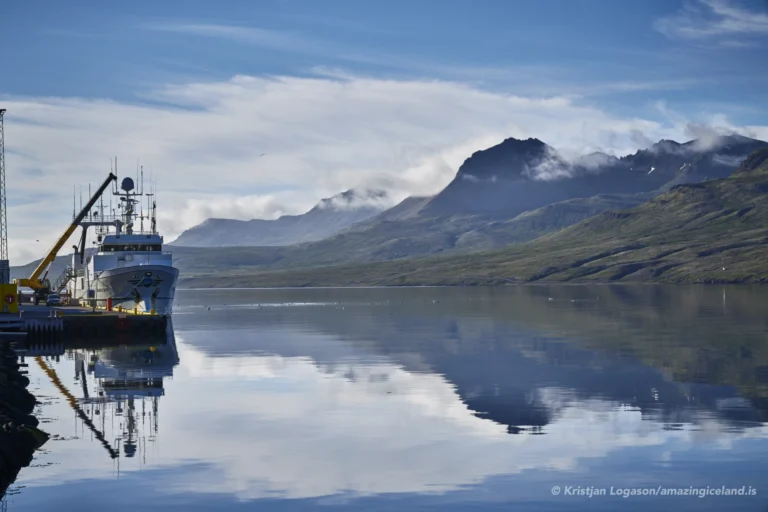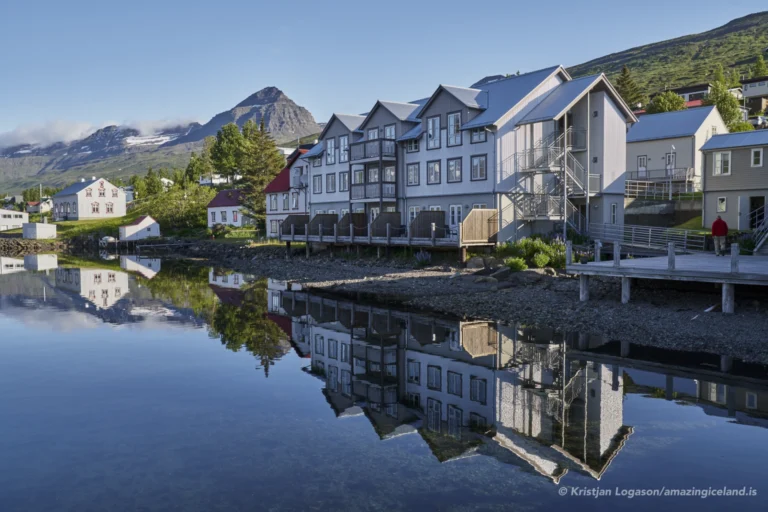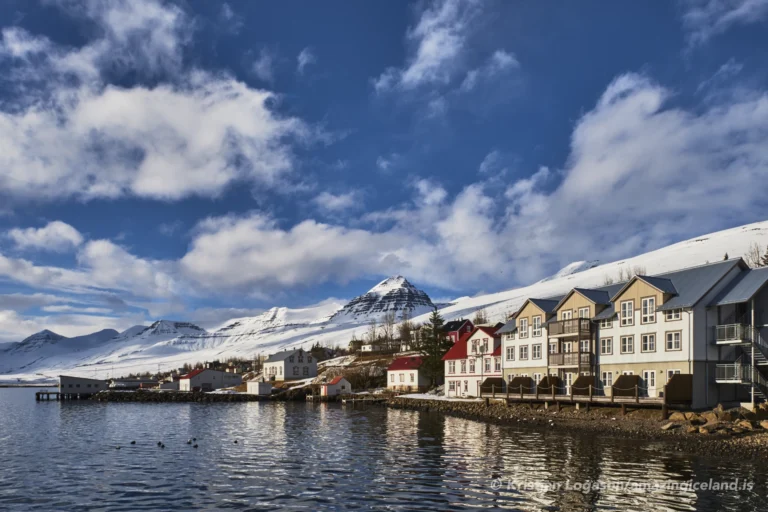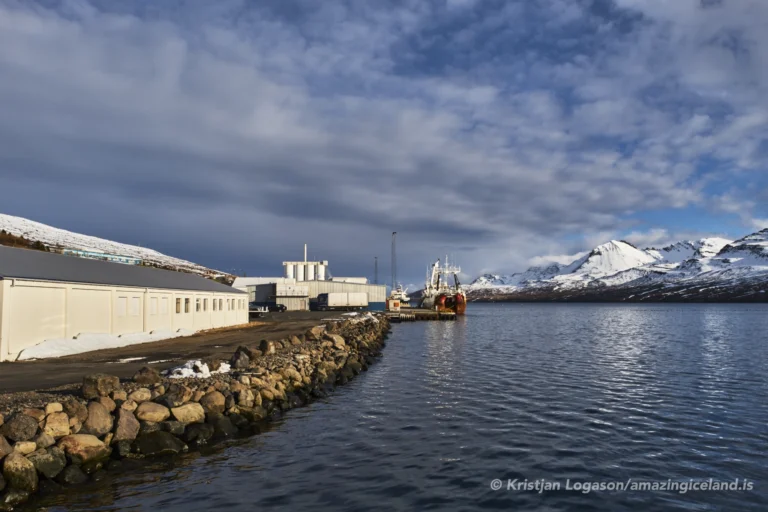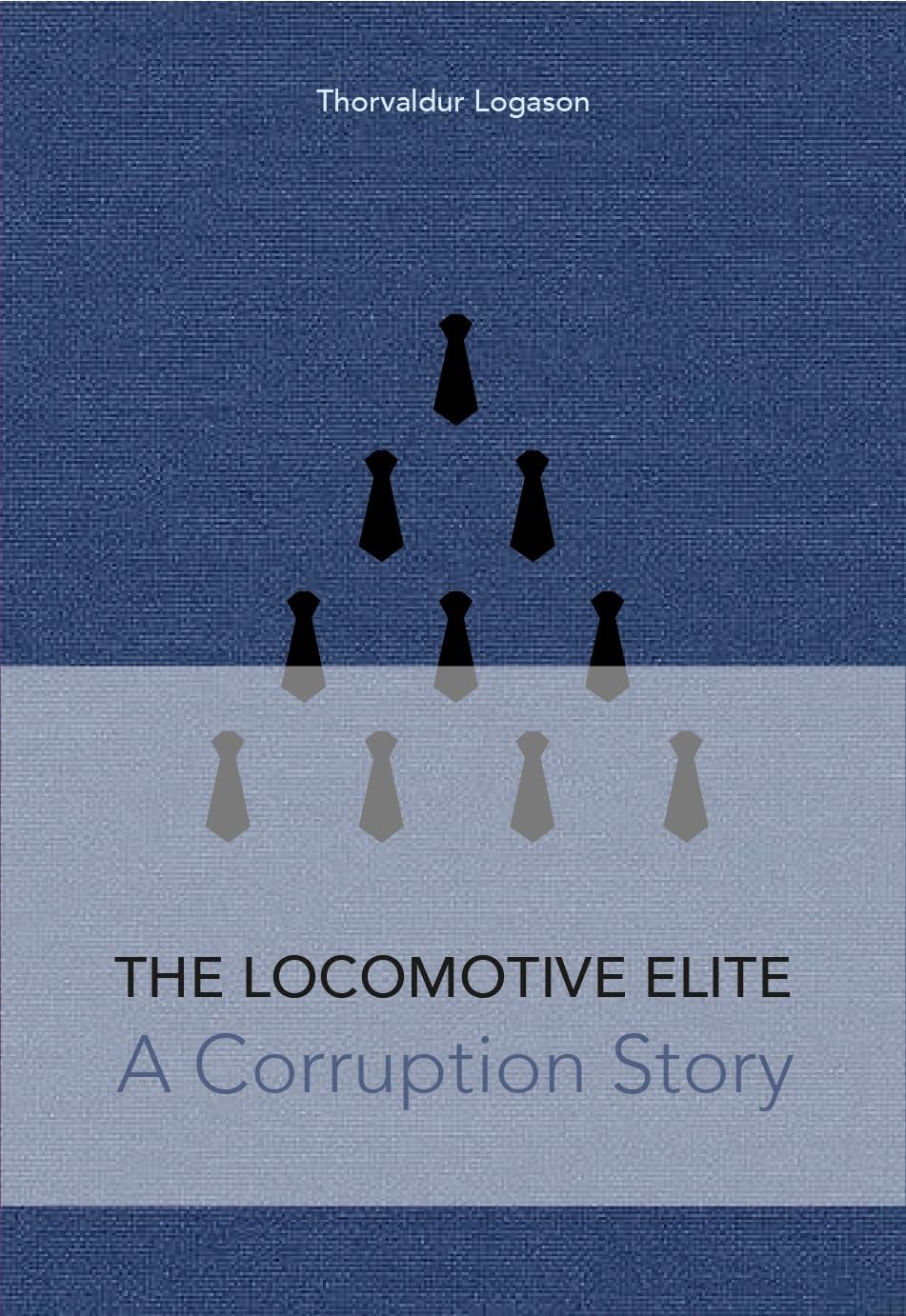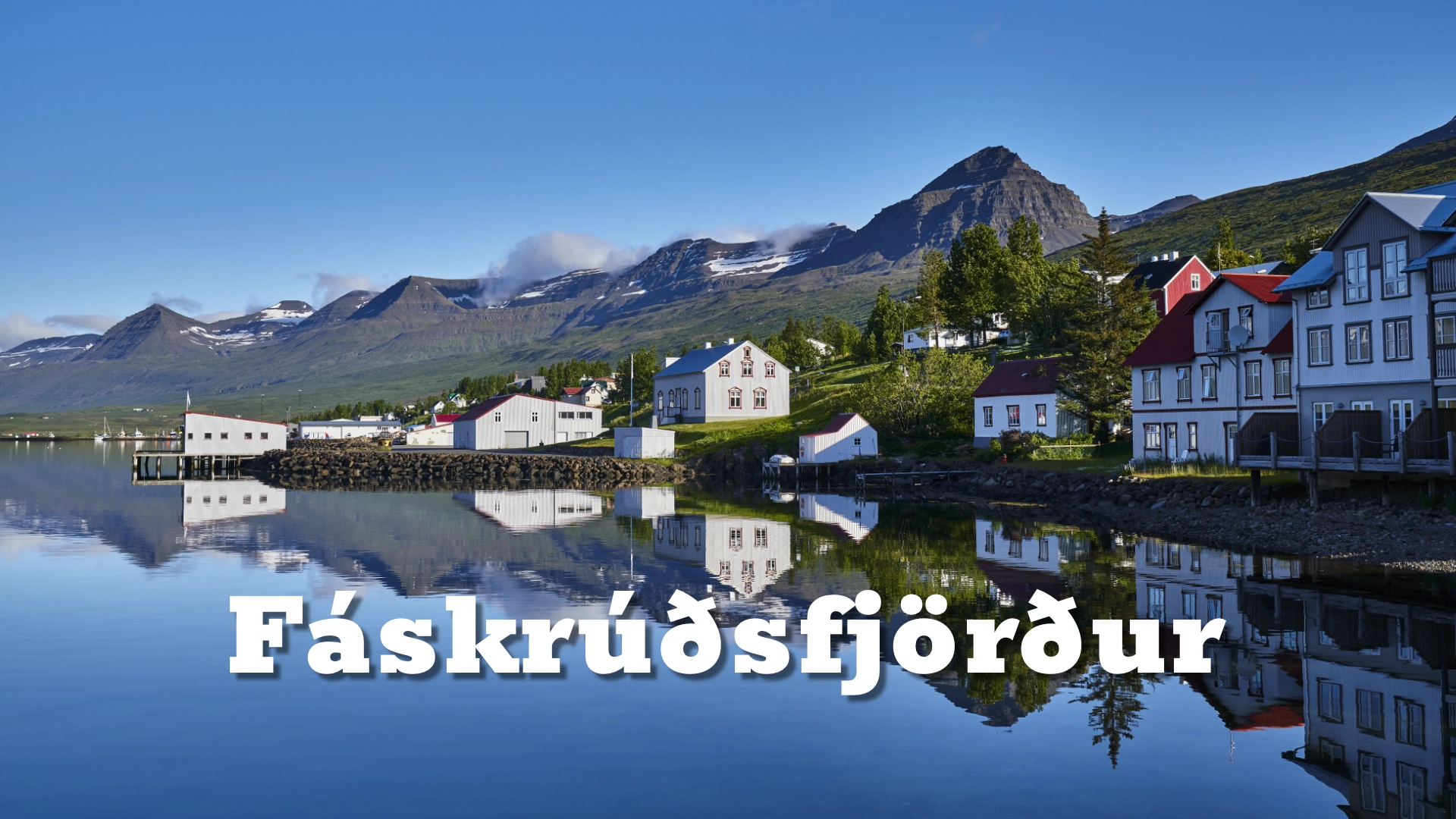
Fáskrúðsfjörður is a picturesque fjord and small town on the east coast of Iceland, known for its deep historical ties with French fishermen, stunning landscapes, and vibrant cultural heritage. The fjord’s town is called Búðir, but everyone calls it Faskrudsfjordur. It became a trading post in 1880. Once a crucial hub for foreign seafarers, the town remains an important link between Iceland and France while offering breathtaking natural beauty and a unique identity within Icelandic history.
Fáskrúðsfjörður East Iceland
Fáskrúðsfjörður: A Historical and Cultural Jewel of East Iceland
Faskrudsfjordur is a picturesque fjord and small town on the east coast of Iceland, known for its deep historical ties with French fishermen, stunning landscapes, and vibrant cultural heritage. The fjord’s town is called Búðir, but everyone calls it Fáskrúðsfjörður. It became a trading post in 1880. Once a crucial hub for foreign seafarers, the town remains an important link between Iceland and France while offering breathtaking natural beauty and a unique identity within Icelandic history.
Historical Significance
Fáskrúðsfjörður’s history is deeply entwined with French fishermen who frequented the area from the late 19th century until World War I. The French established a fishing station, a hospital built in 1903, and various support structures to aid their seasonal operations. This presence left a lasting imprint on the town, which is still visible today in the bilingual Icelandic-French street signs and the restored French hospital, now a museum dedicated to this era. The town’s connection with France remains strong, celebrated through cultural
Natural Beauty and Geographic Features
The fjord itself is a stunning representation of Iceland’s dramatic landscape, surrounded by steep mountains like the 743-meter rhyolite mountain Sandfell that descend into the deep blue waters of the Atlantic. Fáskrúðsfjörður is part of the larger East Fjords region, renowned for its rugged coastlines, remote charm, and abundant wildlife, including seabirds and seals. The town is also close to some of Iceland’s most scenic hiking trails, offering visitors access to untouched wilderness and panoramic vistas.
In addition to its striking natural surroundings, the fjord is known for its rich marine ecosystem, where fishing remains an essential part of the local economy. The serene waters reflect the towering peaks, creating a picturesque setting that changes dramatically with the seasons. During summer, the region bursts with wildflowers, while winter transforms it into a snow-covered wonderland. Nearby, waterfalls cascade down rocky cliffs, and black sand beaches offer a stark contrast to the lush green valleys. The pristine environment makes Fáskrúðsfjörður an ideal destination for nature lovers, photographers, and outdoor enthusiasts looking to experience Iceland’s raw and unspoiled beauty.
Modern Cultural and Economic Life
Today, the town balances its historical legacy with modern development. The local economy is primarily based on fishing and tourism, with increasing interest in eco-tourism and cultural heritage tourism. The town’s fishing industry continues to thrive, supporting local businesses and providing fresh seafood that attracts visitors and sustains the community. Alongside traditional industries, tourism has grown significantly, with travelers drawn to the town’s unique heritage, stunning landscapes, and outdoor activities.
The annual French Days Festival is a highlight of the town’s cultural calendar, celebrating Fáskrúðsfjörður’s deep historical ties with France. The festival features traditional Icelandic and French cuisine, live music, art exhibitions, and historical reenactments that bring the past to life. The restoration of significant historical sites, such as the French hospital, chapel, and fishermen’s dwellings, has played a crucial role in preserving the town’s maritime legacy. These efforts have transformed Fáskrúðsfjörður into an open-air museum of sorts, where history seamlessly blends with modern Icelandic life.
Beyond its cultural significance, the thriving town offers a high quality of life for residents, with modern amenities, schools, and a strong sense of community. Local businesses, guesthouses, and restaurants contribute to a welcoming atmosphere, making it an attractive destination for both tourists and those seeking a peaceful yet vibrant place to live. With continued investment in sustainable tourism and historical preservation, Fáskrúðsfjörður stands as a remarkable fusion of history, nature, and culture. Its past as a hub for French fishermen, combined with its scenic landscapes and evolving tourism industry, makes it a unique destination in Iceland’s East Fjords.
As efforts continue to preserve its heritage while embracing modernity, Fáskrúðsfjörður remains a testament to the enduring connections between Iceland and France, as well as the captivating beauty of Iceland’s remote regions. The town’s ability to honor its seafaring history while looking toward a sustainable future ensures that its charm and significance will continue to thrive for generations to come.
Interesting facts:
The Locomotive Elite
What do Donald Trump and Iceland’s Locomotive Elite have in common?
Far more than you think.
In The Locomotive Elite, you’ll uncover how a tiny clique in Iceland captured extensive control—of banks, courts, media, and even the central bank.
For decades they ruled, first democratically, then through corruption and in the end through crime, enriching themselves and their cronies while dismantling oversight.
The result?
One of the most spectacular financial collapses in modern history.
